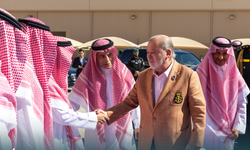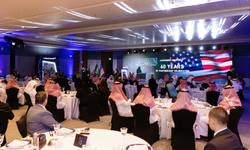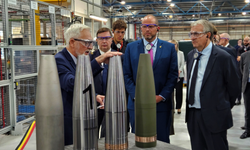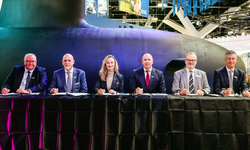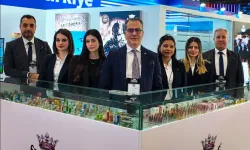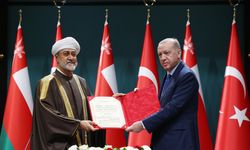Safran has inaugurated a new facility in Marchin, in Belgium’s Liège Province, that will produce titanium compressor blades for aircraft engines. The site, named Safran Blades, is designed to support the company’s supply chain resilience and enhance its industrial presence in Europe.
The plant, developed with a €108 million investment, is a joint effort between Safran Aero Boosters (56%), Wallonie Entreprendre (28%), and the Belgian Federal Holding and Investment Company (SFPIM) (16%). Located on a former steel industry brownfield that has been redeveloped, the 10,000-square-meter facility incorporates digital manufacturing tools, automation, and AI-driven systems. It has been designated a "Factory of the Future" by Agoria, a Belgian technology industry federation.
The facility is expected to produce around 700,000 titanium blades annually by 2026, particularly for LEAP1 and GEnx engines used in Airbus and Boeing aircraft. Each engine contains hundreds of these components. The plant will eventually employ 150 skilled workers.
Safran CEO Olivier Andriès described the facility not only as a production site but as part of a broader strategy to regain control over critical value chains. “We are gaining a technological, industrial, and environmental head start,” he said during the inauguration. “This reflects our intention to build a stronger, more innovative and sustainable aeronautics industry in Europe, together with our Belgian partners.”
The opening was attended by several senior officials. Jan Jambon, Belgium’s Deputy Prime Minister and Federal Minister of Finance, said relocating blade production to Belgium reinforces industrial expertise and reduces supply chain vulnerabilities. “The creation of this state-of-the-art plant meets the federal government’s desire to reindustrialize the European economic fabric, and Belgium in particular,” he noted.
Adrien Dolimont, Minister-President of Wallonia, framed the project as part of the region’s WINGS initiative, which aims to foster research and innovation in aerospace. “Wallonia is confirming its goal of supporting a cutting-edge, innovative, sustainable, and sovereign aeronautics industry,” he said, adding that an additional €16.3 million subsidy will be provided for a new 18-month development phase.
Pierre-Yves Jeholet, Walloon Minister of Economy and Industry, emphasized that the project aligns with the region’s priorities. “This embodies the industrial Wallonia we want: sovereign, sustainable, innovative and rooted in its territory,” he said.
Executives from Safran’s Belgian subsidiaries also commented on the project's implications. François Lepot, CEO of Safran Aero Boosters, called the plant a demonstration of how public financial support can help create competitive, high-value industrial capabilities. Meanwhile, Safran Blades CEO Mathieu Deladrière said the company has built a strong network of local and European partners to drive innovation. “We’ve created a collective dynamic where robotics is transformed into human added value,” he said.
[📣 #Communiqué de #presse] Safran, l’État fédéral belge et la Région wallonne inaugurent en Belgique une nouvelle usine d’aubes de compresseur pour moteurs d’avion complètement digitalisée. ➡️ Lire le communiqué complet : https://t.co/s1jZKdDJlv pic.twitter.com/j43fYtw7ES
— Safran (@SAFRAN) June 3, 2025

